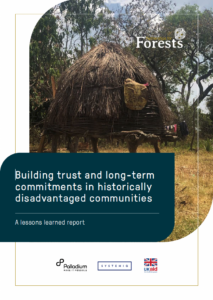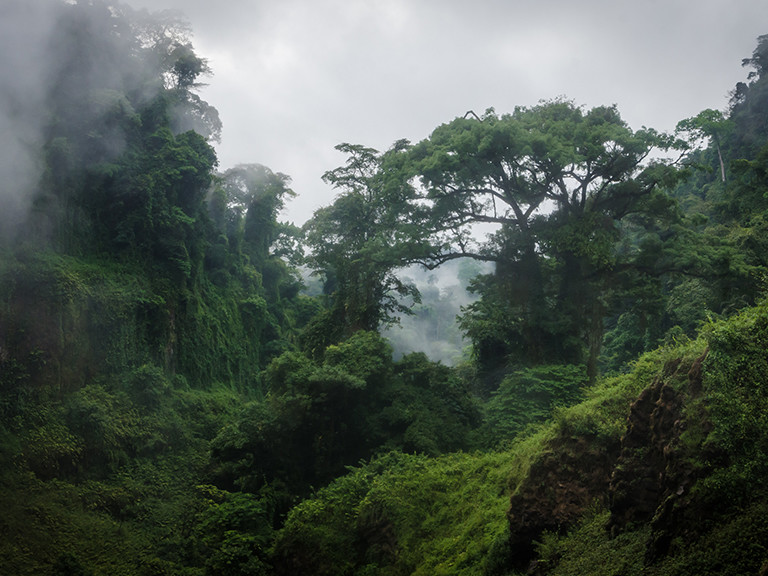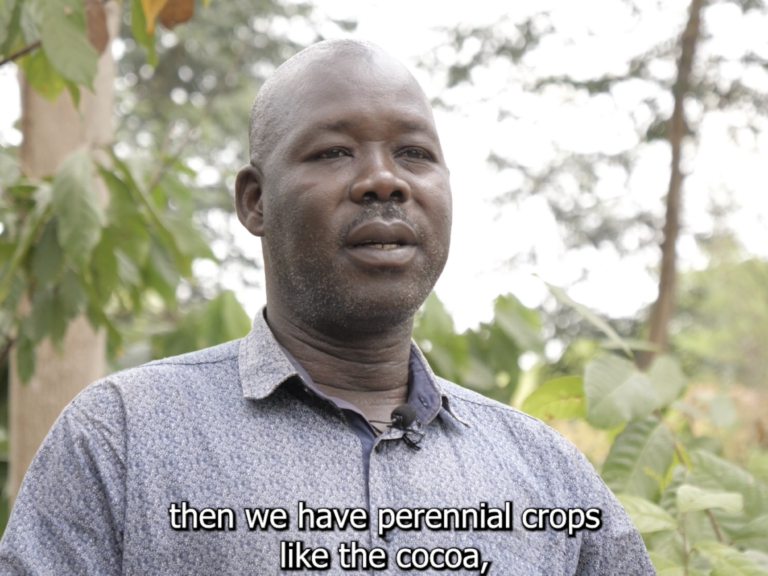This lessons-learned report explores how an innovative agroforestry programme successfully built trust and mobilised communities in the Gulu district in Northern Uganda.
The programme is being implemented by Lush Investments and Alumalum Rural Investments Limited, with support from the Gulu District Government, and funding and technical assistance from Partnerships for Forests.
The agroforestry programme aims to transition 1000 farmers away from annual subsistence crops towards perennial agroforestry systems. Agroforestry systems are more resilient to climate shocks such as unpredictable rainfall and offer long term diversified revenue streams for farmers.
Communities in the Gulu region of northern Uganda have been subject to decades of hardship and trauma during a prolonged civil war. As a result of the 20-year conflict, more than a million people were forced to leave their homes and seek refuge in Internally Displaced People Camps. Most of those displaced have now returned to their home and are rebuilding their lives.
It is in this context that Lush and Alumalum are implementing a novel agroforestry programme that aims to regenerate forest, sequester carbon, and increase farmer incomes.
This report compiles learnings emerging from interviews with representatives from Lush and Alumalum, local government, Partner Farmer Programme members, and CFM group members. It identifies six main lessons relevant for other project developers in the agriculture, forests, and land use sector who are looking to build trust and mobilise communities in a post conflict setting.

Download


